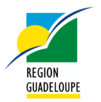Guadeloupe is one the world’s 25 richest areas in terms of biodiversity. It is gifted with an extraordinary natural heritage, whose strong potential suggests a grand future.
White and black sand beaches, deep waters, mangrove, dense and damp forests or waterfalls and rivers… our region possesses an exceptional diversity of natural environments both marine and terrestrial, along with an impressive quantity of remarkable sites. It also comprises:
- two natural reserves: that of the Grand-Cul-de-Sac-Marin and the Petite-Terre islands (La Désirade);
- the « Natural Parc of Guadeloupe » monitored by the National Forestry Office since 1970, and which spreads across almost 40 000 hectares.
These landscapes and sites constitute major assets for the territory, and must be protected, promoted and well-used. Some of the benefits expected in coming years include:
- the reinforcement of the region’s attractiveness
- the preservation of living conditions, and even their enhancement based on new economic development opportunities.
Thanks to its location at the centre of the Caribbean area as well as its tropical climate, Guadeloupe possesses a world known biodiversity. The richness of its natural resources constitutes a key asset in terms of attractiveness.
The Guadeloupe Regional Council sees to protect this exceptional biodiversity by multiplying initiatives meant to meet the environmental challenges that are threatening it. The regional authority is intent of converting Guadeloupe into an innovative territory — a leading example on matters of biodiversity preservation.
Based on more than 60 000 hectares of natural areas and its exceptional biodiversity, Guadeloupe possesses a precious and crucial capital with regards to its economical, social and cultural potential.
However, it is important to protect it, especially in the face of growing urbanisation and given the impact of pollution and development on the littoral. In that view, optimal synergy between development and environment must be achieved.
The Guadeloupe Regional Council supports planning actions on protected natural sites. It also contributes financially to several programmes striving for the protection of endangered species and other awareness-oriented actions.
The regional authority is focused on responding to the four main challenges listed in its Regional Development Scheme (SAR)
- development modes must be more respectful of the environment
- compensation measures in favour of biodiversity must be taken in response to localised damage
- biodiversity knowledge and acknowledgment must expand
- protection measures must be transcribed in Local Urbanism Plans (PLU).
Furthermore, the regional authority’s action operates within the 2011-2020 National Strategy for Biodiversity (SNB).
The Guadeloupe Regional Council launched the Regional Plan for Natural Resources and Biodiversity (SRPNB) in November 2013. This tool meant to assist the decision-making process aims at defining the main strands for preserving and enhancing natural resources and biodiversity.

